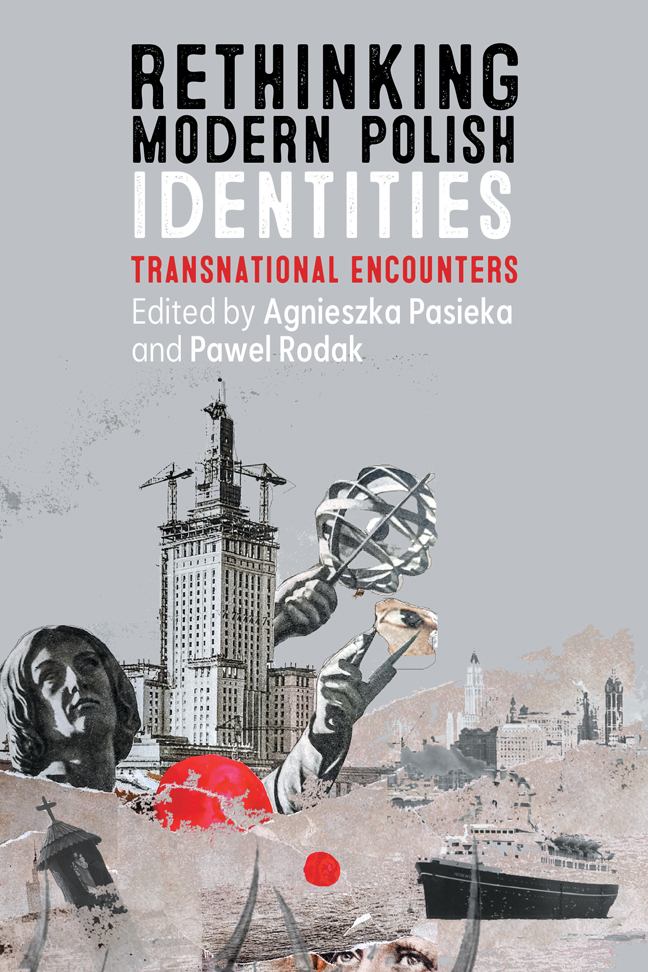Book contents
- Frontmatter
- Contents
- Acknowledgments
- Introduction: Polishness: A Story of Sameness and Difference
- Part One Redefining Polishness
- Part Two Identity in the Making
- Part Three Portraits and Performances
- Afterword: Polishness: A Time of Deconstruction, a Time of Reconstruction
- Notes on the Contributors
- Index of Names
- Index of Subjects
Five - Redefining Polishness through Jewishness?
Published online by Cambridge University Press: 10 January 2024
- Frontmatter
- Contents
- Acknowledgments
- Introduction: Polishness: A Story of Sameness and Difference
- Part One Redefining Polishness
- Part Two Identity in the Making
- Part Three Portraits and Performances
- Afterword: Polishness: A Time of Deconstruction, a Time of Reconstruction
- Notes on the Contributors
- Index of Names
- Index of Subjects
Summary
There are currently more than forty festivals of Jewish culture throughout Poland, most of them initiated in the mid-2000s. The interest in Jewish culture is noticeable all year long, however, as can be observed from the commercial success of klezmer music, the proliferation of Judaica bookstores and Jewish-style restaurants, the opening of new museums, memorials and memory spaces, the growing engagement of artists and public intellectuals with Poland’s Jewish past and Polish-Jewish relations more broadly, and the emergence of Jewish studies programs at multiple universities (Gruber 2002; Lehrer 2013; Waligorska 2013; Wodziński 2011; Zubrzycki 2016). The historian and Jewish studies scholar Marcin Wodziński (2021) found that between 2011 and 2021, approximately one hundred books and several hundred articles on Jewish topics were published every year, many written to be accessible to a broader public. The last indicator of this cultural phenomenon, about which there are no official statistics, is the modest but rising number of conversions to Judaism. These converts are often people who discover Jewish roots and feel compelled to “return to the source,” but sometimes they are Poles without Jewish ancestry who are nevertheless called or seduced by the appeal of Judaism.
To be sure, the twin rebirth of Jewish communal life and non-Jewish Poles’ interest in all things Jewish are facilitated by the specific historic juncture brought about by the fall of communism and EU accession, which I discuss elsewhere (2016, 2022). My focus here, however, is on non-Jewish Poles’ rediscovery of Poland's Jewish past and their resurrection of Jewish culture in contemporary Poland. That process cannot be reduced to the commodification of Jewish culture, nor does it merely mark the anti-Semitic folklorization of Jews and things Jewish—a point Erica Lehrer has convincingly drawn out in her work (2003, 2013). Neither should it be read as a solely Polish outlet to address cultural trauma or reckon with a difficult past. No doubt some of these feelings fuel the multipronged Jewish turn, but I find it is primarily related to a broader attempt and long-standing efforts by both Jewish and non-Jewish cultural elites, social activists, ordinary citizens, and some state agencies to expand the symbolic boundaries of Polishness that the political right seeks to harden and shrink using a conservative, nationalist version of Catholicism as its primary tool.
- Type
- Chapter
- Information
- Rethinking Modern Polish IdentitiesTransnational Encounters, pp. 92 - 110Publisher: Boydell & BrewerPrint publication year: 2023

